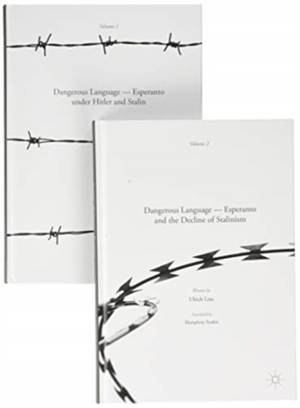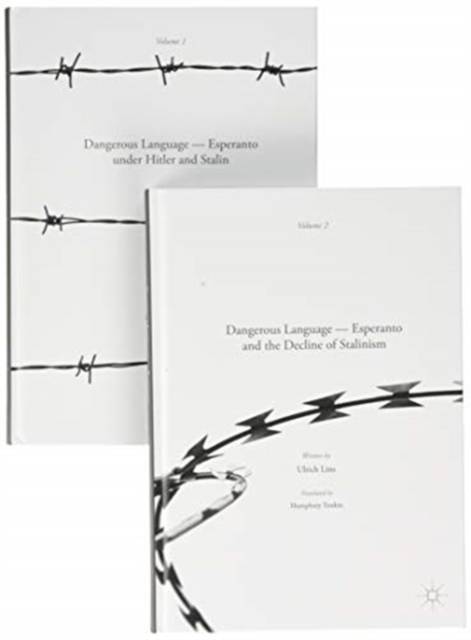
- Retrait gratuit dans votre magasin Club
- 7.000.000 titres dans notre catalogue
- Payer en toute sécurité
- Toujours un magasin près de chez vous
- Retrait gratuit dans votre magasin Club
- 7.000.0000 titres dans notre catalogue
- Payer en toute sécurité
- Toujours un magasin près de chez vous
Description
This multi-book set includes both volumes of Dangerous Language by Ulrich Lins.
Volume I examines the rise of the international language Esperanto, launched in 1887 as a proposed solution to national conflicts and a path to a more tolerant world. The chapters in this volume chart the emergence of Esperanto as an answer to a widespread democratic desire for direct person-to-person international communication regardless of political boundaries. Its early success was limited, mostly because of the Czarist regime's suspicion of direct communication with foreigners, and, later, similar suspicion by dictatorial regimes generally. As speakers of a "dangerous language," its adepts were harassed and persecuted, especially in Germany and the Soviet Union. This book argues that the fate of Esperanto over the 130 years of its existence serves as a barometer to measure the degree to which regimes tolerate spontaneous personal contact with other countries and allow the pursuit of self-education outside prescribed national or ideological constraints.
Volume II examines the position of Esperanto in Eastern Europe during the Cold War; in particular it explores Stalin's final years and the gradual re-emergence of the Esperanto movement. At first, its revival was limited to the satellite countries, especially Bulgaria and Poland, but, with Stalinism's gradual retreat, Esperanto organizations reappeared in most East European countries and eventually in the Soviet Union itself. The progress was uneven, and its details reveal the stresses and strains that became apparent as the solidarity of the Soviet bloc declined. This book will appeal to a wide readership, including linguists, historians, political scientists and others interested in the history of the twentieth century from the unusual perspective of language.
Volume I examines the rise of the international language Esperanto, launched in 1887 as a proposed solution to national conflicts and a path to a more tolerant world. The chapters in this volume chart the emergence of Esperanto as an answer to a widespread democratic desire for direct person-to-person international communication regardless of political boundaries. Its early success was limited, mostly because of the Czarist regime's suspicion of direct communication with foreigners, and, later, similar suspicion by dictatorial regimes generally. As speakers of a "dangerous language," its adepts were harassed and persecuted, especially in Germany and the Soviet Union. This book argues that the fate of Esperanto over the 130 years of its existence serves as a barometer to measure the degree to which regimes tolerate spontaneous personal contact with other countries and allow the pursuit of self-education outside prescribed national or ideological constraints.
Volume II examines the position of Esperanto in Eastern Europe during the Cold War; in particular it explores Stalin's final years and the gradual re-emergence of the Esperanto movement. At first, its revival was limited to the satellite countries, especially Bulgaria and Poland, but, with Stalinism's gradual retreat, Esperanto organizations reappeared in most East European countries and eventually in the Soviet Union itself. The progress was uneven, and its details reveal the stresses and strains that became apparent as the solidarity of the Soviet bloc declined. This book will appeal to a wide readership, including linguists, historians, political scientists and others interested in the history of the twentieth century from the unusual perspective of language.
Spécifications
Parties prenantes
- Auteur(s) :
- Traducteur(s):
- Editeur:
Contenu
- Nombre de pages :
- 497
- Langue:
- Anglais
Caractéristiques
- EAN:
- 9783030239671
- Date de parution :
- 17-12-19
- Format:
- Livre relié
- Format numérique:
- Genaaid
- Dimensions :
- 155 mm x 235 mm

Les avis
Nous publions uniquement les avis qui respectent les conditions requises. Consultez nos conditions pour les avis.






